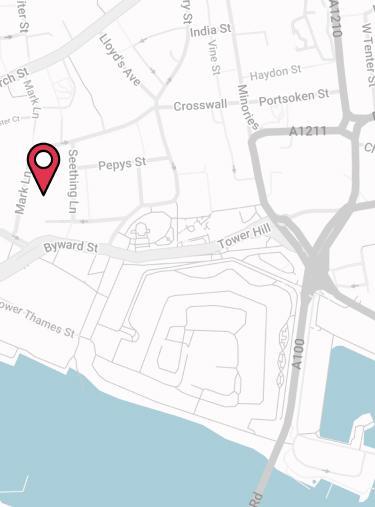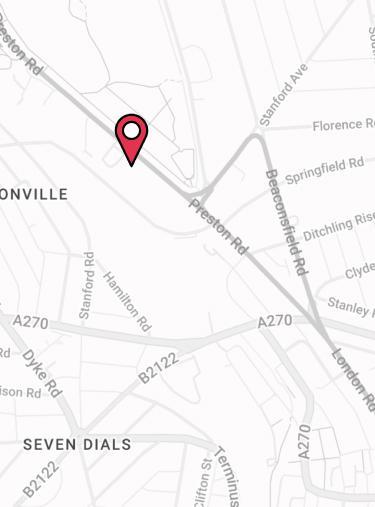Don’t Leave It Too Late to Get Insurance Cover

While Drewberry unfortunately couldn’t find any insurer willing to cover 447 people in 2017 due to their medical history, there were many more for whom we could place risk only after the insurer applied exclusions to certain conditions or increased the premiums significantly (loadings typically range from 25% to 300%).
For Income Protection, common exclusions include for back pain and mental health, as these are pre-existing conditions frequently seen among the population. While a policy with exclusions is better than no protection at all, it does mean that you’re not covered in the most comprehensive manner possible, as a certain condition or conditions will be excluded from future claims.
The ultimate message is that it pays to get insurance while you’re healthy as this will ensure the most comprehensive level of cover. Any delay until after you start suffering from a medical condition will usually impact your policy.

While some people are unfortunately denied cover, crucially pre-existing conditions don’t necessarily mean you’ll be declined for insurance. If you have a pre-existing condition, it’s so important to seek help from an independent insurance adviser who can look at the entire market to find you the best deal for your circumstances.
Josh Martin
Independent Protection Specialist at Drewberry
When is Insurance Declined?
The 447 clients unable to get terms due to their medical background in 2017 included 54 who were having ongoing tests / investigations for a condition. The remainder already had a condition that meant getting cover just wasn’t possible at that time.
17% of the clients insurers couldn’t place on their books were rejected for having multiple – often comorbid – conditions. In certain cases, there may be a combination of factors that prevent an insurer from being able to offer cover, such as where diabetes, a high body mass index (BMI) and high blood pressure are all combined within an individual.

Note that back pain in itself isn’t usually a reason for the insurer to decline terms, especially not for Life Insurance. For Income Protection, it’s far more common for the insurer to place a back exclusion on the policy if you already suffer from a bad back. The potential policyholders who didn’t get cover due to back pain were specifically looking for insurance to pay out to cover their time off work after the fact, which sadly just isn’t possible.
Jake Mills
Independent Protection Specialist at Drewberry
Ongoing Investigations
More than half of the individuals who couldn’t get cover were precluded because they were awaiting surgery for a condition, while a third were having unspecified ongoing medical tests they were yet to receive the results for.
While awaiting an operation won’t necessarily be a decline for Life Insurance, there may be a loading placed on your policy due to the risk of future surgery.
For Income Protection you may still be able to get cover depending on what the operation is for. For instance, if you’re awaiting a knee replacement you may still be able to get cover given that your knee will usually be excluded anyway. If, however, you need more serious surgery, such as heart or brain surgery, the insurer may defer or decline your application until after the operation when the results are known.

Unfortunately, clients don’t think about this type of cover until it becomes apparent that something may be wrong and their doctor has sent them for diagnostic tests / scans. At this point they start to think of potential time off work this might cause, but sadly by then it’s usually too late to get insurance until the results of those tests have come back with a definitive diagnosis.
Samantha Haffenden-Angear
Independent Protection Specialist at Drewberry
Other Conditions That Make Getting Insurance Difficult…
Other common reasons for insurers being unable to offer Income Protection cover in particular include:
- A recent history of cancer – while insurers may be able to offer cover in the future, particularly if the disease was caught in the early stages and treatment was successful with no remission, you would typically have to wait for a period of time before being offered cover if you currently have or have recently had cancer. You may face a cancer exclusion or a rating in the future when you are offered terms.
- Diabetes – while it’s possible to get Income Protection for diabetics, with the exception of one specialist insurer cover is only available to those with Type 2 diabetes currently. Even then, only a select few insurers will offer it. Blood sugar levels must be tightly controlled and there should ideally be no diabetic complications (e.g. retinopathy, neuropathy) or exacerbating factors, such as a high BMI or hypertension.
- BMI – a high BMI can by itself be a factor leading to a decline in insurance, particularly for Income Protection. Generally speaking, someone with a BMI of over 40, particularly if they have other health conditions, will struggle to get cover.
- Bone / joint complaints – we often field phone calls from clients who’ve unfortunately had an accident and broken bones, including one individual who needed surgery to break and reset their hand following a car accident and the wound healing unsatisfactorily. Unfortunately, it’s too late to get cover for broken bones to pay out while you heal – the cover needs to be in place before the injury occurs.
- Heart conditions – serious heart conditions, such as recent heart attacks, heart surgeries and procedures, will often preclude an individual getting insurance cover. As we become more susceptible to heart problems as we age, it makes sense to lock in cover while you’re younger and not facing such health problems.
This isn’t to say that it’s impossible for someone to get cover – it may just not be available on standard terms. We’d always recommend speaking to an independent specialist who can survey the market for you if you have any pre-existing conditions – call us today on 02084327333.
Other Illnesses and Injuries
Other Illnesses / Injuries by Type
Conditions involving the brain, eyes and kidneys were the most common conditions that prevented individuals from taking out insurance, as were serious conditions such as HIV and multiple sclerosis (MS).
How Protection Could Help…
When we think of protection insurance, we’re normally considering Life Insurance, Critical Illness Cover and Income Protection.
Life Insurance will pay out if you pass away; it usually includes within it Terminal Illness Benefit, where you payout is paid early if you’re diagnosed with a year or less to live. Life Cover won’t generally place exclusions on certain pre-existing conditions – they’ll either decline to offer cover or, alternatively, rate your premium by a percentage they feel is appropriate for the level of risk you represent.
What to do if you’ve been declined Life Insurance >>
Critical Illness Cover will pay out if you’re diagnosed as critically ill. It would have been there for the heart attack, stroke and MS sufferers (as well as anyone else diagnosed with a serious illness) laid out in the charts above had the cover been in place prior to them developing their condition. It pays out a tax-free cash lump sum if you’re diagnosed with one of a set of pre-defined conditions. Critical Illness Insurance is often combined with Life Cover, especially when there’s a mortgage to protect.
What to do if you’ve been declined Critical Illness Cover >>
Income Protection is there to protect you should anything medically prevent you from working. That means it wouldn’t just be there for those suffering from serious, critical illnesses but would also cover the people we’ve seen rejected for currently having broken bones, needing surgery, suffering from back pain or mental health conditions had the cover been in place prior to them developing the injury / illness.
What to do if you’ve been declined Income Protection >>
Income Protection can be incredibly all-encompassing, but it only works at its best if you take out cover before you have any pre-existing conditions to be concerned with. Once you start getting exclusions because you’re health has taken a turn for the worse, it stops being as comprehensive as it would be had you taken out a policy when your health was better.
Contact Us
125-135 Preston Road
Brighton
BN1 6AF
Cookies
Drewberry™ uses cookies to offer you the best experience online. By continuing to use our website you agree to the use of cookies including for ad personalization.
If you would like to know more about cookies and how to manage them please view our privacy & cookie policy.









